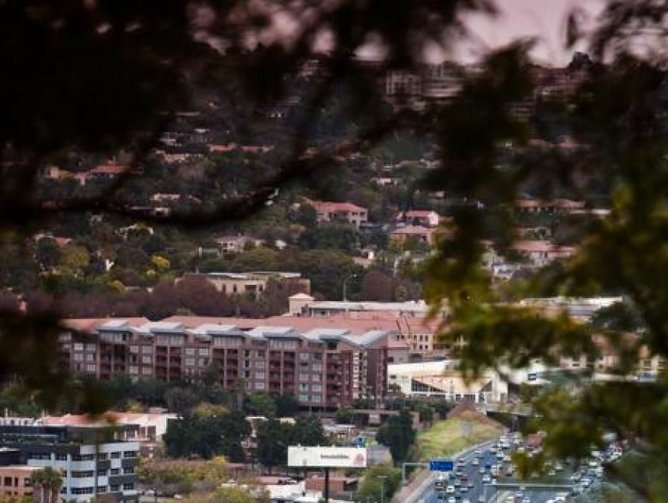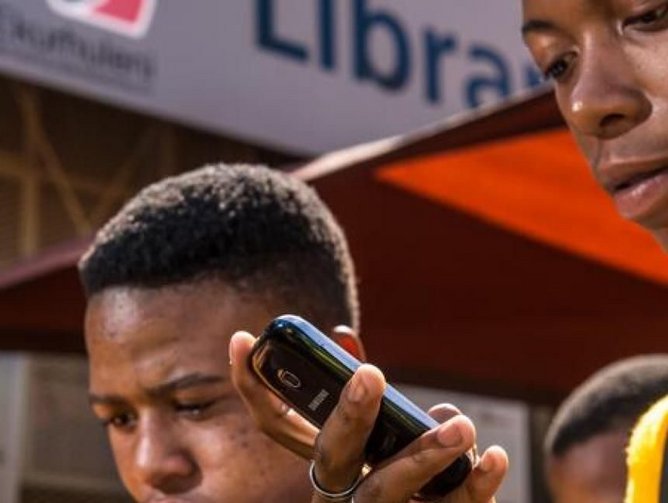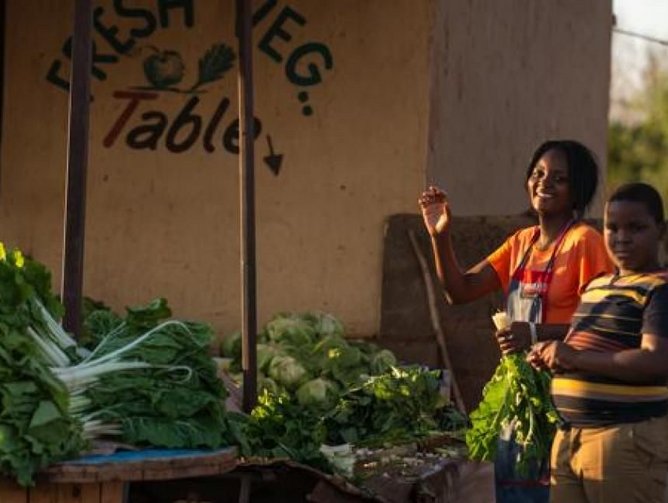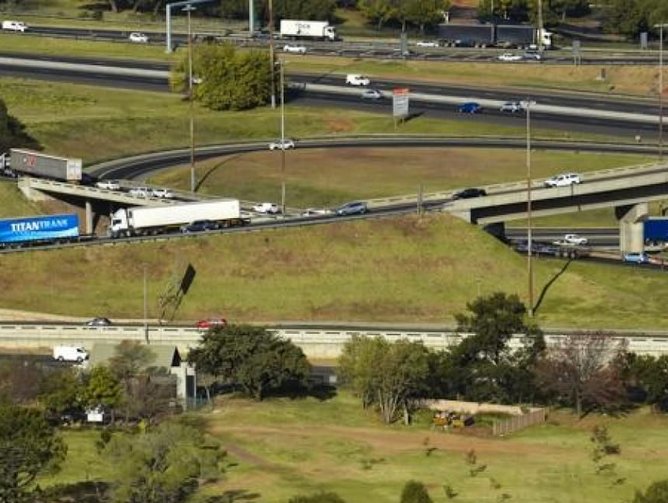In 2013, nearly 60 percent of working age residents in Ekurhuleni, South Africa, didn’t have access to the Internet. In the years since, the city’s local government set about changing that — and so much more.
Whether a sprawling metropolis or a growing urban settlement, many of the world’s cities share a single goal: getting “smart”. South Africa’s Ekurhuleni Metropolitan Municipality is no exception, and in 2013 the local government launched its ‘Digital City’ initiative in an effort to bridge the growing digital divide. However, the process of integrating features like free public access wi-fi and the internet of things (IoT) was not going to prove as easy as simply installing routers and sensors.
Ekurhuleni is an amalgamation of nine different city regions which lacked unified telecoms infrastructure prior to the start of the Digital City project. For Lydia Ntlhophi, the Divisional Head for Business Relations Management at Ekurhuleni Metro Municipality, and her colleagues, centralising services was the first step in digitising the city.
“We have citizens that are coming from very impoverished backgrounds and they are not really participating in the economy because buying data is expensive,” Ntlhophi explains. “Digital City is seen as one of the key activities that will help the city to bridge that gap as well to make sure that engagement with the city changes.”
At present, Ekurhuleni residents rely on Customer Care Centres (CCC) to access information and services — including paying their utility bills and logging complaints about housing. Consumers often commute to reach their nearest CCC only to find themselves facing long queues on arrival. City officials want to change the way that the public interacts with their local authority by, quite literally, putting services into the palms of their hands.
“We want smartphones to be the devices that citizens can engage us with,” Ntlhophi says. Provision of so-called ‘e-services’ is one of the key aims of the Digital City programme. When work is complete in 2017, residents will be able to make use of their mobile phones to report fault, to consume services and to apply for new services.
Some 70 percent of Ekurhuleni residents currently own a smartphone, while most of the remaining 30 percent has access to a landline. The city is working to include those without wi-fi enabled devices by creating a USSD (Unstructured Supplementary Service Data) for the provision of e-services. “If you want to call and report a fault, you press ‘star + 1’,” Ntlhophi explains. “We’re not excluding any segment of the residents.”
The rollout of digital utilities in the city could only happen once broadband infrastructure was fully fitted. To date, 602 kilometres of fibre optic cabling has been installed across Ekurhuleni, connecting a variety of offices and buildings. When the project is completed, 1,400 kilometres of fibre optic cable will provide Internet capabilities to almost 700 buildings. There are also 2,000 public access wi-fi hotspots located across the city, primarily in its more remote townships, to offer citizens convenient access to information.
Ntlhophi reports that there have been 1.3 million users of the city’s free wi-fi service since it debuted, and the number of users has grown by roughly 17 percent every month.
“We estimate a direct financial benefit of 13 million since the launch,” she says. “That means Ekurhuleni residents using Wi-Fi are saving between R1 to R2 per Mb, pre paid data is prohibitively expensive in South Africa. We project an annual benefit of about R29 million as we expand the coverage . This is tangible money that the city is spending on residents.” Around 36 percent of Ekurhuleni’s youth are unemployed and the provision of free wi-fi is intended to present them with vital new opportunities and information. Users of the service can access a ‘walled garden’ portal, which directs them to educational content, CV building services and a business directory, among other services.
Now that much of Ekurhuleni’s connectivity infrastructure is in place, the Digital City project can turn its hand to improving computing. Prior to the start of the improvement initiative, the city’s data centres weren’t optimally organised, with multiple systems consuming electricity inefficiently. Maintenance requirements were high and when a service ‘went down’, it took officials a long time to restore it. As a result, local businesses suffered and the City of Ekurhuleni risked not being seen as a strategic partner.
“We have provisioned a converged computing platform, with two main sites and one backup,” Ntlhophi says of Digital City’s IT solution. “We have two main sites which have storage, computing and networking all in one, and we have one site which serves as a backup. We spent about R110 million on this converged infrastructure, the benefits far exceeds the costs. This investment helps us to ensure that IT is reliable and the experience of the user is excellent.”
Applications play an important part in the way that the newly-digitised Ekurhuleni will run. Most of the applications in use by the local government, like those related to water and energy, have been outsourced to external service providers. The local authority’s enterprise resource management (ERP) programme consists of integrated applications developed by the likes of Microsoft and Oracle. The city managed to reduce the number of applications it was using to facilitate service provision from 176 to 40 simply by “rationalising customer requirements and functionality”, according to Ntlhophi.
The city has built a mobile app that enables citizens to view and pay their bills online as well as another app for reporting incidents and requesting services from the city. These apps are proving to be low cost channels giving citizens 24 hour access to services provided by the city. The city has also rolled out an e-Health system that has significantly improved the processes of patient registration, records management and pharmaceutical management of ordering and distribution of medication. Development work is close to completion for another app that will be used by city officials to register indigent citizens and process their applications more efficiently.
With increased connectivity comes greater insight into the behaviours and patterns which characterise citizens’ lives. The city of Ekurhuleni exchanges information bidirectionally with its citizens, meaning that it can both send and receive data from residents. “The importance of that is that we’re now able to build mobile apps and provide information,” Ntlhophi explains. “This is an achievement because not only are we making apps available, we are allowing small businesses and individuals to gather annually for a hackathon where they can build their own apps.”
The ‘hackathon’ encourages the city’s tech-savvy innovators to work together to develop IT solutions which will further help officials deliver services efficiently and effectively. Participants utilise Ekurhuleni’s open data sets to build mobile apps, some of which can be monetised by local companies scouting for talent at the events. The Metropolitan Municipality has also introduced ‘learnerthons’ in its public libraries to teach younger, less-experienced tech users how to code. When the Digital City initiative is complete, all 45 of Ekurhuleni’s libraries will play host to learnerthons in order to pass the spirit of digital innovation onto the next generation.
Ultimately, Digital City will facilitate a crucial, two-way conversation between residents and their local authority. The project isn’t just going to help the government provide services, but advance Ekurhuleni’s economy and, in turn, further the quality of life for its citizens.
“We are facilitating an ecosystem for small companies and big companies in Ekurhuleni,” Ntlhophi says. “Open data has huge potential in terms of monetisation and job creation.”





